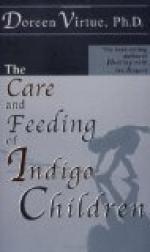Is there any objection to a baby being partly nursed and partly fed?
None whatever; it is often better from the outset to feed the baby during the night, in order not to disturb the mother’s rest.
What symptoms indicate that the mother’s milk disagrees with the child?
The child suffers from almost constant discomfort sleeps; little and then restlessly, cries a great deal, belches gas from the stomach, and passes much by the bowels, or if not passed, the gas accumulates and causes abdominal distention and colicky pain. There may be vomiting, but more often the trouble is intestinal. Sometimes the bowels are constipated, but usually the movements are frequent, loose, green, contain mucus and are passed with much gas.
What should be done under these circumstances?
If the symptoms have persisted for two or three weeks and the child is not gaining in weight, there is little chance of improvement, and the child should be taken from the breast at once. If there is some gain in weight, one may try for a little longer, endeavouring to improve the mother’s milk by rest, fresh air, careful diet, etc. However, one should always realize that the trouble is with the milk, not with the child.
What changes should be made if a nursing infant habitually vomits?
If this occurs soon after nursing, the infant has usually taken too much and the time of nursing should be shortened, or one breast may be given instead of two; the nursing should also be interrupted by occasional rests, so that the milk is not taken too fast.
If the vomiting occurs some time after nursing and is repeated, it is a sign of indigestion; often because the milk is too rich in fat. The intervals between nursings should then be lengthened; the breast milk may be diluted by giving one or two tablespoonfuls of plain boiled water, lime-water, or barley-water, five or ten minutes before nursing; the mother should eat less hearty food, especially less meat.
What should be done if the infant has frequent or habitual colic?
This is usually because the milk is too rich in proteids; the mother should take more out-of-door exercise, eat less meat, and seek to control her emotions; all causes of worry should be removed.
Can constipation in a nursing infant be controlled through the mother’s milk?
Only to a limited extent. It is important that the mother’s bowels be regular and her digestion good. An increase in the meat and milk of her diet is sometimes beneficial.
WEANING
At what age should the child be weaned from the breast?
Usually weaning should be begun at nine or ten months by substituting one feeding a day for one nursing, later two feedings, and thus gradually the child is to be taken from the breast altogether.




